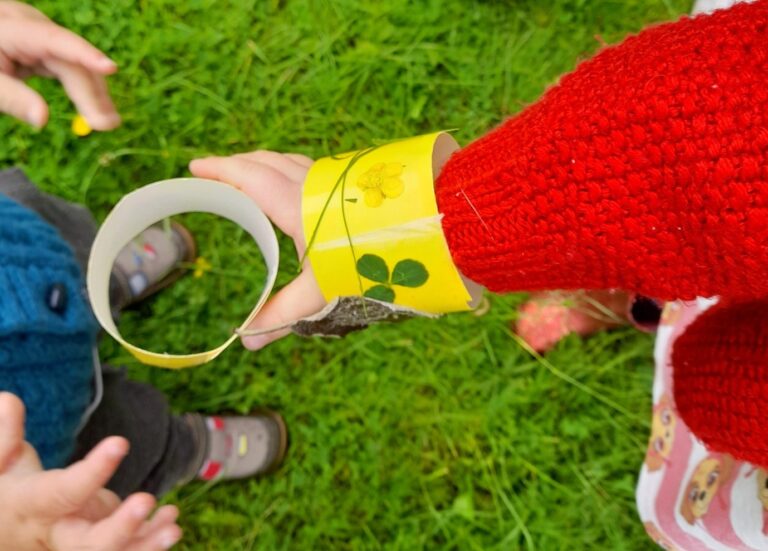When caring for a child with additional needs, you may find yourself attending various appointments with different professionals to ensure your child gets the right support. These might include visits to your child’s doctor, paediatrician, or specialist consultants, as well as meetings with speech and language therapists, occupational therapists, or physiotherapists, depending on your child’s needs. You may also attend appointments with educational psychologists, social workers, or SENCo (Special Educational Needs Coordinator) at your child’s school or nursery.
Each appointment serves to assess, monitor, and create plans for your child’s development and support needs. These appointments can sometimes feel quite overwhelming, but they are an essential part of creating a tailored support plan to help your child thrive in every aspect of their life.
Top tips and ideas to help you prepare for the appointment
Appointments related to your child’s development or diagnosis can be varied and often involve different types of professionals. It’s common to be asked to bring your child to the first appointment so the professionals can meet them, talk to them, see them play or observe how they engage. This interaction with your child is often a crucial part of the assessment process. However, in some cases—especially when the focus is more on background or history—it may be more helpful to attend alone or take someone with you who can support your child while you speak privately with the professional.
When your child has a physical disability, it’s important to consider access needs well in advance. Check if the building is wheelchair or buggy accessible, whether there are hoists or changing facilities if needed, and how long you might be expected to wait, as this could affect comfort and fatigue levels. Call ahead if you’re unsure—most centres will be happy to talk through your child’s needs.
It may feel really daunting and you don’t know how to approach an appointment, especially if it is your first one, so here are some key things to think about before the appointment:
- Preparation is key: Bring detailed notes on your child’s behaviours, challenges, progress, and any specific concerns. Include any reports from nursery/childminders, therapists, or previous appointments.
- Keep a running log: Use your phone’s notes app or carry a notebook to jot down observations or things you want to raise. It’s easy to forget in the moment, so it is be really helpful to be able to put things down as you think of them,
- Gather key documents: Take copies of any paperwork you think might be relevant (e.g., EHCPs, education reports, previous assessments, or hospital letters). Even if the centre has these, having your own copy can make discussions easier, because you can refer to them quickly if you need to. Take any diaries you have keptabout your child’s daily habits etc.
- Know your facts: You may be asked about pregnancy, birth history, early milestones, feeding, sleeping, and any regressions. Prepare notes about these in advance if you need to, so that you’re not caught off guard.
- Bring comfort items: Appointments often take place in clinical settings that can feel unfamiliar or overwhelming. Pack toys, sensory items, comforters, snacks, drinks, nappies, spare clothes, covers or any medical supplies your child may need. This helps keep them calm and regulated during the appointment.
- Think about accessibility: For children with mobility or medical needs, think about how you will get there, where to park, what equipment you might need, and whether your child will need help getting around once you arrive. Think if you need to take someone with you to help, or ask for help when there.
During the appointment, you can expect:
- Discussion of history: You’ll likely be asked for your child’s medical background, including pregnancy and birth details, and any relevant family history.
- Questions about daily life: Expect to be asked about your child’s routine, sleep, diet, social interactions, and any regressions or behaviours of concern.
- Developmental observations: The professionals will often observe how your child interacts, plays, moves, or communicates during the appointment. This helps them assess both strengths and areas of need.
- Formal assessments: Depending on the purpose of the appointment, there may be structured tasks or tests to assess physical, emotional, communication, or cognitive development.
- Asking questions: Don’t hesitate to ask for clarification or explanation if you don’t understand something. Take notes if it helps or ask if you can record the meeting (some centres will allow this with permission).
If you need extra support—such as a translator or advocate —then let the team know in advance so they can arrange this, or bring someone with you to help.
Having a child with additional needs often means attending far more appointments than other parent/ carers might, which can sometimes feel overwhelming and hard to keep track of. Writing things down or keeping notes on your phone can really help you stay organised. Make sure you keep hold of any letters you receive too – they often contain key information you’ll want to refer to. Make a folder to keep everything together, so you are ready for each appointment.
To help you feel more prepared, there is a Sample Meeting Preparation Form below that you can use to gather your thoughts and important details before your next appointment:
| Question | Your Notes |
| Does your child have a current diagnosis? | |
| Are they any Health or other professionals involved? | Name
Job role |
| List all prescribed medication: | Name
Dosage How often |
| Any allergies? | |
| Any hospital visits since they were born? | Date
Reason |
| Do you think they have reached some or all of their developmental milestones? | |
| Any problems during the pregnancy or birth? | |
| What is their general health like?
Are they often unwell? |
|
| Any accidents or injuries recently? | |
| Any significant events in their life – e.g. death of a family member, death of a family pet, moving house or school etc. | |
| Do they generally eat well? | |
| Do they have any sleep difficulties? | |
| Do you have any current concerns about their behaviour? | |
| Do you have any other concerns? | |
| Any other things you want to mention? |
Useful sources of information and support
Parental Advice if you are concerned about your child’s development: I’m worried about my child’s development
Useful information on the signs of autism:
https://www.nhs.uk/conditions/autism/signs/children/
The National Autistic Society is a charity that supports families – their advice and guidance section has a lot of useful information about autism: https://www.autism.org.uk/
Jargon Buster! Here are some terms or abbreviations you might come across in your appointment
- SEND – Special Educational Needs and Disabilities
A term used to describe children and young people who need extra support due to learning difficulties or disabilities that make it harder for them to learn than most others their age. - SENCo – Special Educational Needs Co-Ordinator
A teacher in a school or nursery responsible for coordinating the support for children with SEND and making sure their needs are met. - ASD/C – autism spectrum disorder/Condition
A developmental condition that affects how a person communicates, interacts with others, and experiences the world around them. - ADHD – Attention Deficit Hyperactivity Disorder
A condition that can cause a person to be more impulsive, hyperactive, and have difficulty concentrating or sitting still. - GDD – Global Developmental Delay
A term used when a child takes longer to reach developmental milestones in areas like movement, speech, learning, or social interaction. - PDA – Pathological Demand Avoidance
A profile within the autism spectrum where a person finds everyday demands extremely challenging and may use avoidance or anxiety-driven behaviours. - OCD – Obsessive Compulsive Disorder
A condition that causes a person to have unwanted thoughts (obsessions) and repetitive behaviours (compulsions) they feel they must do to ease anxiety. - SPD – Sensory Processing Disorder
A condition where the brain has trouble receiving and responding to information from the senses, causing someone to be overly sensitive or under-responsive to things like noise, touch, or movement. - OT – Occupational Therapy/Therapist
A type of support that helps children develop everyday skills like dressing, eating, or using their hands for writing and play. - PT – Physiotherapy/Therapist
Support to help improve a child’s physical movement, strength, balance, and coordination. - ODD – Oppositional Defiant Disorder
A behavioural condition where a child often shows ongoing patterns of anger, irritability, arguing, or defiance towards authority figures. - Comorbidity
When a person has more than one condition or diagnosis at the same time, such as having autism as well as ADHD. - Tourette’s Syndrome
A neurological condition that causes a person to make involuntary movements or sounds, known as tics. - Neurodiversity – Neurodiversity is a framework for understanding how people think, learn, and behave. Most people are ‘neurotypical’, meaning their brains function generally as expected by society.
However, it’s estimated that around 1 in 7 people are ‘neurodivergent’. Neurodivergent means they have different strengths and challenges from people whose brains don’t have those differences. Neurodiversity covers a wide range of conditions, including dyslexia, dyspraxia, ADHD, and autism.
This article was originally created as a resource for A Better Start Southend (ABSS). For other useful resources: https://abetterstartsouthend.co.uk/family-resources/











